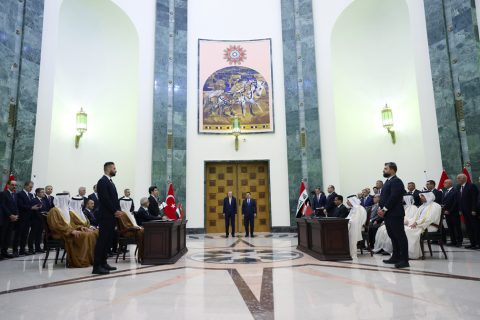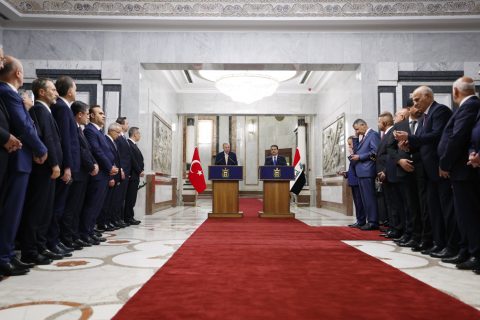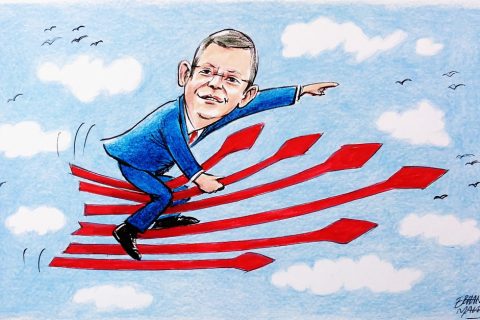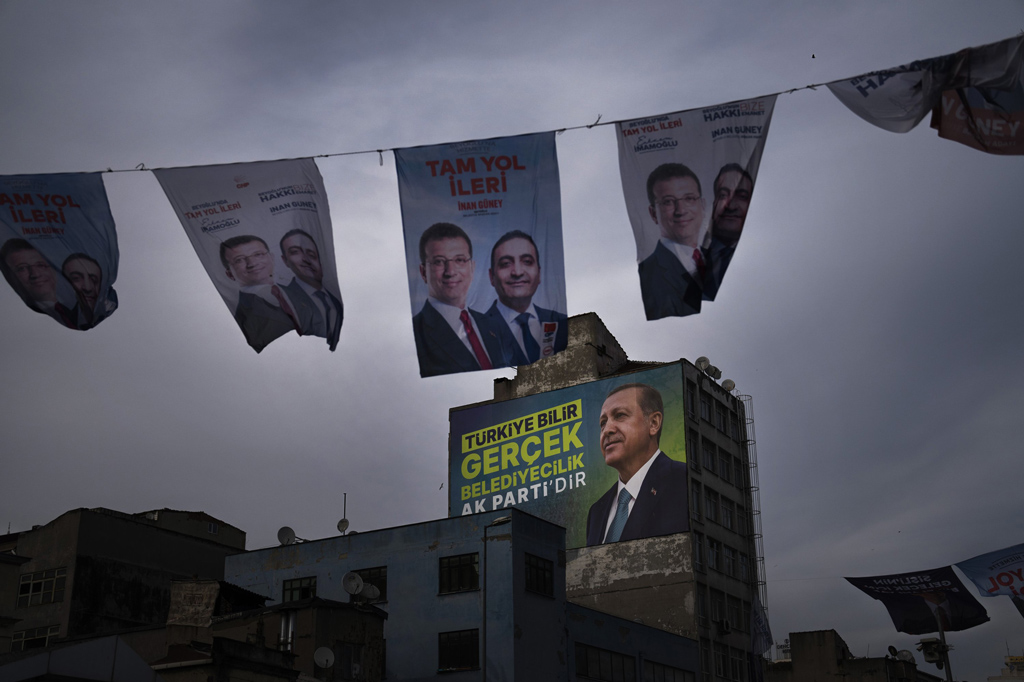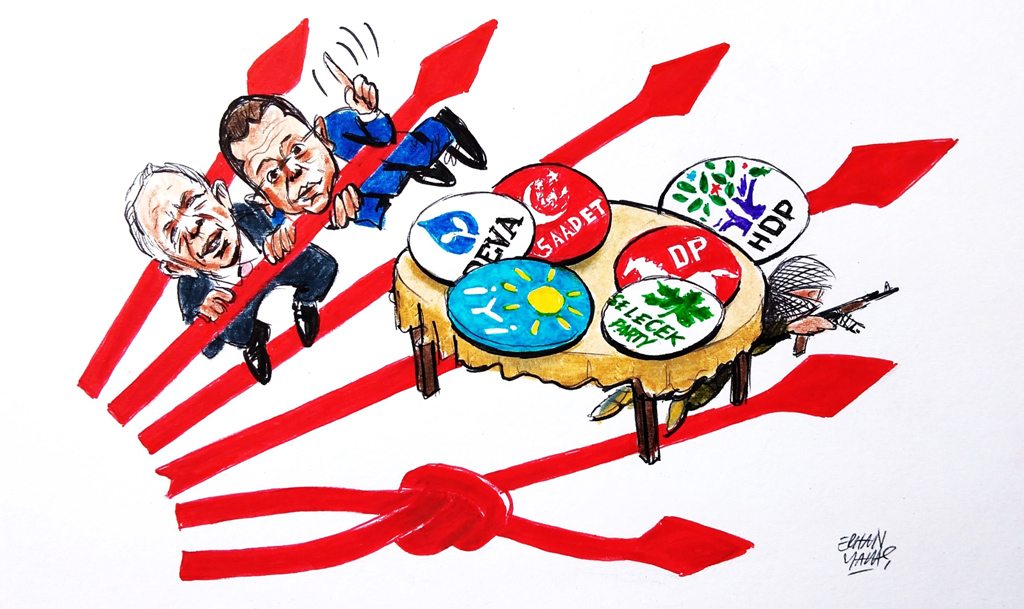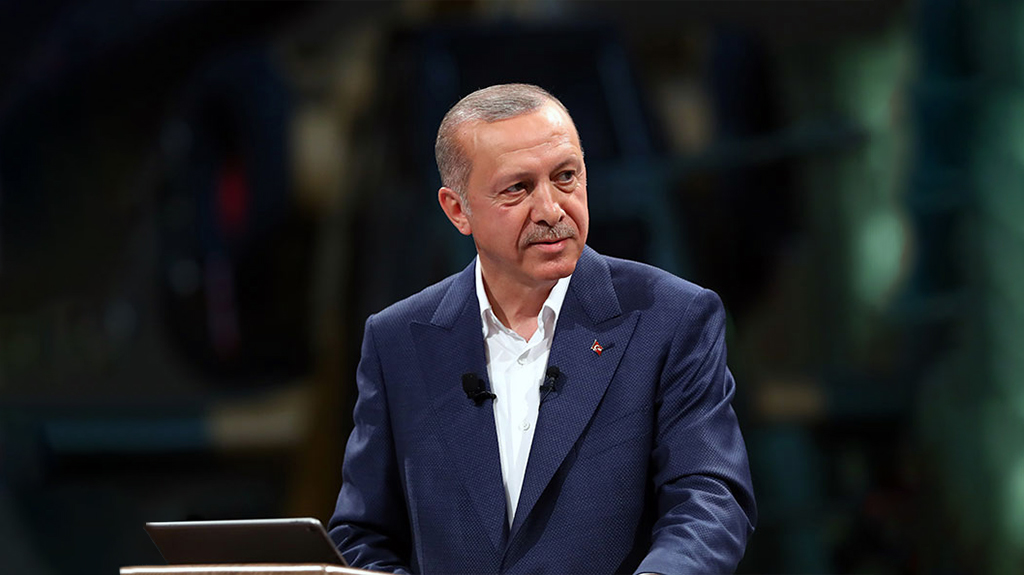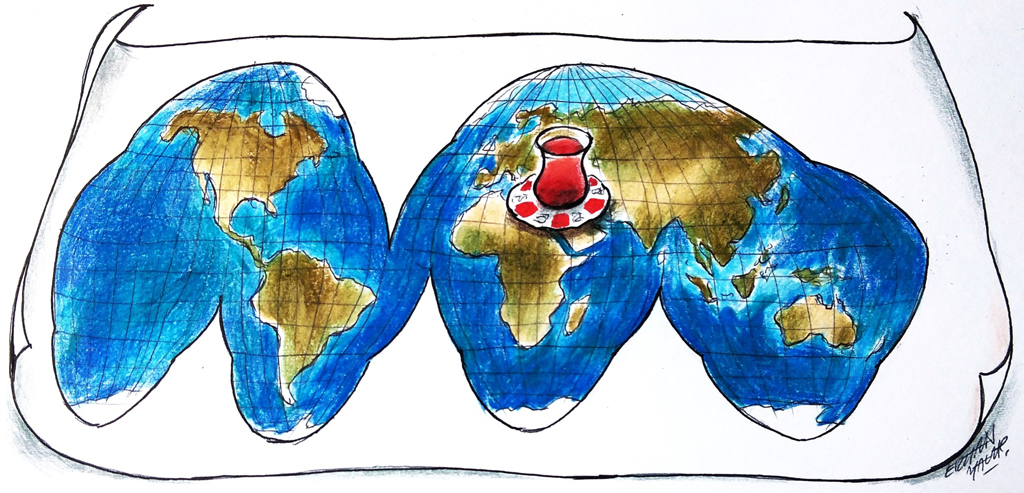Recep Tayyip Erdoğan
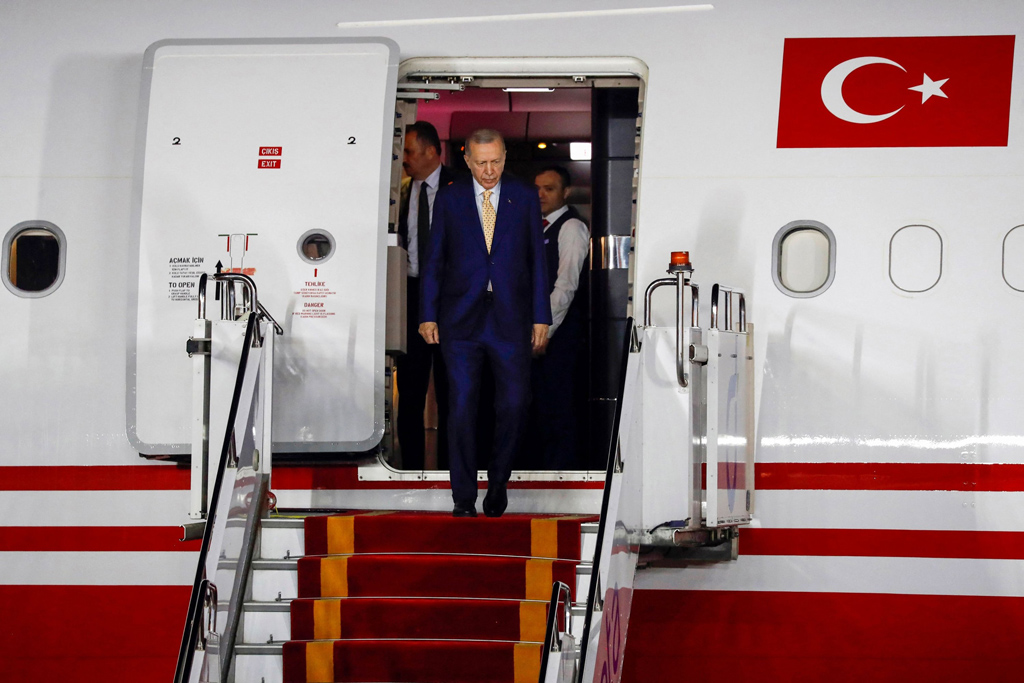
Erdoğan’s landmark visit to Iraq
| OpinionPresident Recep Tayyip Erdoğan’s recent visit to Iraq could mark the beginning of a new …
-
Opinion
A fresh start in Türkiye-Iraq relations
By Burhanettin DuranUnder the strategic framework agreement for joint cooperation, which the two countries inked in Baghdad, their bilateral relations have been elevated to the level of strategic partnership with a “qualitative leap.” The Turkish and Iraqi governments created a road map for future cooperation. Their commitment to solving problems and elevating their cooperation to the highest level rests on the “win-win” principle. Accordingly, the Turkish delegation, which included eight Cabinet ministers, focused on a broad range of issues, including counterterrorism, cross-border waters, security, the defense industry, trade, health care, communication, education, energy and transportation.
-
Opinion
Turning point in Türkiye-Iraq relations
By Muhittin AtamanPresident Recep Tayyip Erdoğan paid an official one-day visit to Iraq on Monday. He was accompanied by a large delegation, including Foreign Minister Hakan Fidan, Interior Minister Ali Yerlikaya, Defense Minister Yaşar Güler, Trade Minister Ömer Bolat, Energy Minister Alpaslan Bayraktar, Minister of Transportation and Infrastructure Abdülkadir Uraloğlu, Minister of Agriculture and Forestry Ibrahim Yumaklı and Minister of Industry and Technology Fatih Kacır. Many high-ranking Turkish officials also accompanied President Erdoğan.
-
Opinion
What does CHP want to do?
By Burhanettin DuranAs Türkiye’s political parties and leaders analyze the municipal election results, it remains unclear what Turkish politics will look like in this new period. President Recep Tayyip Erdoğan paid due respect to the people’s choice on election night, making an inclusive statement that encouraged the opposition to speak responsibly.
Bu Konuda Daha Fazla
-
Key to Turkish election triumph in metropolitans: Ballot box...
By Burhanettin DuranAhead of this weekend’s municipal elections, the People’s Alliance, and the Republican People’s Party (CHP) alike, make the case that there are actually two candidates in each district. The argument that voters should opt for their second favorite if their own party cannot win so that their least favorite candidate does not end up in office is intended to create a “second round” effect.
-
Significant momentum in Turkish foreign policy
By Burhanettin DuranTürkiye’s foreign policy has been gaining momentum in recent months as a series of developments bolster each other, taking place in quick succession.
-
3 structural problems of CHP’s local election campaign
By Burhanettin DuranThe municipal election campaign of the main opposition Republican People’s Party (CHP) has been riddled with crises, and I am not talking about their various statements that have become the subject of controversy. For example, this is not about the CHP chairperson’s remarks about Turkish citizens who paid for their exemption from military service or Istanbul Mayor Ekrem Imamoğlu’s comments on housewives.
-
AK Party-led alliance and YRP ties as election nears:...
By Burhanettin DuranWith the municipal election just three weeks away, the relationship between the People’s Alliance and the New Welfare Party ("Yeniden Refah" in Turkish - YRP) becomes more apparent. The most significant development of the current election cycle was the opposition parties, which formed an alliance with the main opposition, the Republican People’s Party (CHP), in May 2023 and decided to field their own candidates.
-
Türkiye’s position in multipolar world landscape
By Burhanettin DuranThe debate on Turkish foreign policy's "axis," "strategic autonomy" and "normalization" policy was recently revived by Parliament's approval of Sweden's NATO membership, President Recep Tayyip Erdoğan's Cairo trip and Türkiye joining the European Sky Shield Initiative.
